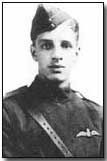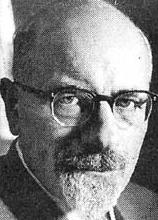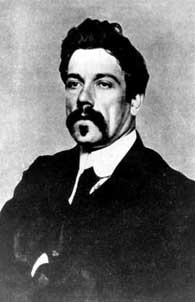A Quote by Ralph Waldo Emerson
The state of society is one in which the members have suffered amputation from the trunk, and strut about so many walking monsters, - a good finger, a neck, a stomach, an elbow, but never a man. Man is thus metamorphosed into a thing, into many things. The planter, who is Man sent out into the field to gather food, is seldom cheered by any idea of the true dignity of his ministry. He sees his bushel and his cart, and nothing beyond, and sinks into the farmer, instead of Man on the farm.
Related Quotes
No man could bring himself to reveal his true character, and, above all, his true limitations as a citizen and a Christian, his true meannesses, his true imbecilities, to his friends, or even to his wife. Honest autobiography is therefore a contradiction in terms: the moment a man considers himself, even in petto, he tries to gild and fresco himself. Thus a man's wife, however realistic her view of him, always flatters him in the end, for the worst she sees in him is appreciably better, by the time she sees it, than what is actually there.
So let us raise a cheer ... for the insatiable spirit of Man eager for all new things! What a tale could have been written by that far off man who first saw a tree trunk roll and made a wheel and cart and harnessed in his mare and cracked his whip and drove away to disappear beyond the hill! Or that first man who made a boat and raised a sail and disappeared hull down to unknown shores!
By Liberty I understand the Power which every Man has over his own Actions, and his Right to enjoy the Fruits of his Labour, Art, and Industry, as far as by it he hurts not the Society, or any Members of it, by taking from any Member, or by hindering him from enjoying what he himself enjoys. The Fruits of a Man's honest Industry are the just Rewards of it, ascertained to him by natural and eternal Equity, as is his Title to use them in the Manner which he thinks fit: And thus, with the above Limitations, every Man is sole Lord and Arbitrer of his own private Actions and Property.
A good man will never harm or oppress another. A good man will share his last morsel of food with others in need, and die of hunger when he no longer has any food -- instead of cheat or steal from others to survive. Selflessness. Humility. Truthfulness. These are the three marks of an honorable man.
It is God's earth out of which man is taken. From it he has his body. His body belongs to his essential being. Man's body is not his prison, his shell his exterior, but man himself. Man does not "have" a body; he does not "have" a soul; rather he "is" body and soul. Man in the beginning is really his body. He is one. He is his body, as Christ is completely his body, as the Church is the body of Christ
By His gracious condescension God became man and is called man for the sake of man and by exchanging His condition for ours revealed the power that elevates man to God through his love for God and brings God down to man because of His love for man. By this blessed inversion, man is made God by divinization and God is made man by hominization. For the Word of God and God wills always and in all things to accomplish the mystery of His embodiment.
A man once jumped from the top floor of a burning house in which many members of his family had already perished. He managed to save his life; but as he was falling he hit a person standing down below and broke that person's legs and arms. The jumping man had no choice; yet to the man with the broken limbs he was the cause of his misfortune. If both behaved rationally, they would not become enemies.
When I hear a man discoursing of virtue, or of any sort of wisdom, who is a true man and worthy of his theme, I am delighted beyond measure: and I compare the man and his words, and note the harmony and correspondence of them. And such an one I deem to be the true musician, having in himself a fairer harmony than that of the lyre.
As a man has no right to kill one of his children if it is diseased or insane, so a man who has made the gradual and conscious expression of his personality in literature the aim of his life, has no right to suppress himself any carefully considered work which seemed good enough when it was written. Suppression, if it is deserved, will come rapidly enough from the same causes that suppress the unworthy members of a man's family.
How very seldom do you encounter in the world a man of great abilities, acquirements, experience, who will unmask his mind, unbutton his brains, and pour forth in careless and picturesque phrase all the results of his studies and observation; his knowledge of men, books, and nature. On the contrary, if a man has by any chance an original idea, he hoards it as if it were old gold; and rather avoids the subject with which he is most conversant, from fear that you may appropriate his best thoughts.
When a man’s heart is cold and unconcerned about religion – when his hands are never employed in doing God’s work – when his feet are not familiar with God’s ways – when his tongue is seldom or never used in prayer and praise – when his eyes are blind to the beauty of the kingdom of heaven – when his mind is full of the world, and has no room for spiritual things – when these marks are to be found in a man the word of the Bible is the right word to use about him, and that word is, ‘Dead.’
If a man loses a dear friend, he looks around and sees many friends come to console and comfort him. If a man loses his wealth, after a little thought he will realize that the delight that came from wealth will be restored by finding more. Thus he forgets his loss and is consoled. But if a man's heart is deprived of peace, where will he find it again, how will he replace it?








































